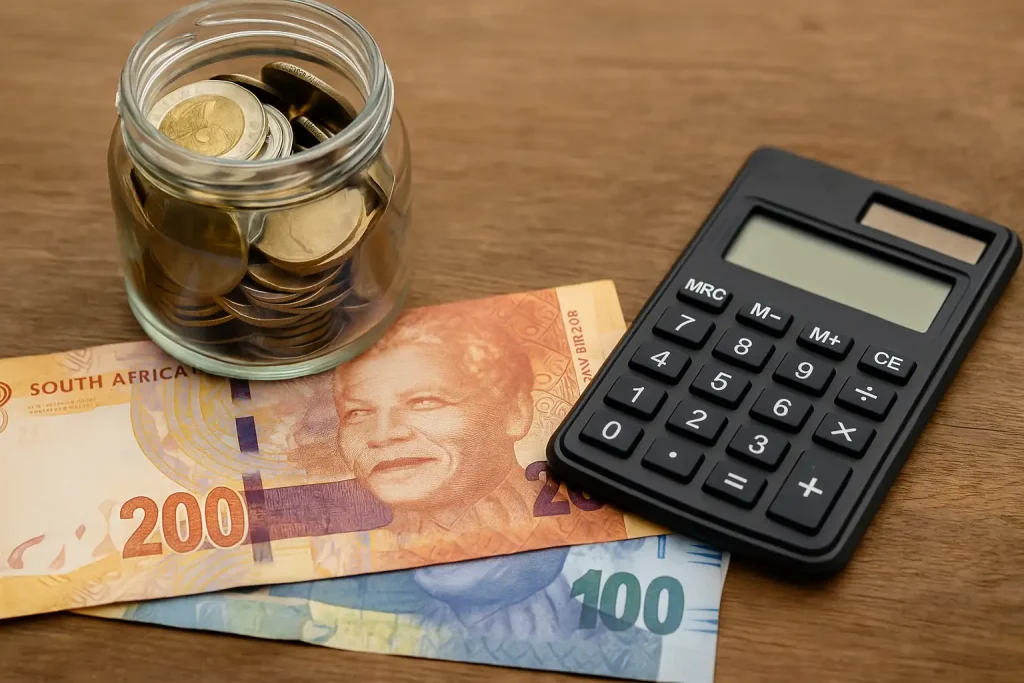Building an emergency fund is essential for financial stability, especially for those with a variable income in South Africa. The unpredictability of earnings can make saving challenging, yet having a financial cushion is crucial in navigating unexpected expenses. This guide will delve into effective strategies for creating a robust safety net.
By understanding your earnings pattern and setting realistic savings goals, you can create a financial buffer that protects you during lean times. This article will offer practical tips and insights into developing an emergency fund tailored to your unique financial situation.
Understanding your earnings and expenses

To build an emergency fund, you first need to thoroughly understand your income and expenses. Start by tracking your monthly earnings to identify average and low-income months. This approach helps you recognize patterns and prepare for income fluctuations. Simultaneously, categorize your expenses into essentials and non-essentials, finding areas where you can cut back if needed.
Creating a detailed budget based on this analysis is crucial for saving efficiently. This allows you to allocate a portion of your income towards your emergency savings fund consistently. Even with a variable income, maintaining a disciplined approach to budgeting and expense management can significantly impact your ability to build a financial safety net.
Budgeting strategies for fluctuating income
When dealing with variable income, adopting a flexible but strict budgeting strategy is vital. One effective method is the “pay yourself first” strategy, where you set aside a fixed percentage of your earnings for savings before addressing other expenses. This ensures your emergency fund grows steadily regardless of monthly earnings variance.
Additionally, implement the envelope method for budgeting, which allocates cash for specific categories of expenses. This tactile approach helps maintain spending control and keeps discretionary expenses in check. By being consistent, these strategies make it possible to save regularly even amidst income volatility.
Building the fund: practical tips and habits
Establishing an emergency fund requires practical steps and disciplined habits. Begin by setting a realistic savings target tailored to your income’s variability. For many in South Africa, a fund covering three to six months of living expenses is ideal. Start small, with achievable goals, and gradually increase them as your financial habits and income stabilize.
Automating your savings is another practical method. Set up automatic transfers from your checking account to your savings account on payday. This removes the temptation to spend excessively and ensures your emergency fund grows consistently over time. Building these habits can transform your financial approach despite income irregularities.
Maintaining and growing your fund
Once your emergency fund is established, it’s crucial to preserve and expand it. Regularly review and adjust your savings contributions based on any changes in income or expenses. Periodic evaluation ensures that your fund remains sufficient to cover unforeseen circumstances like medical emergencies or sudden job loss.
Additionally, consider placing your savings in a high-interest account to benefit from compound growth over time. This maximizes the potential of your emergency fund without additional effort. By continuously nurturing and adapting your savings strategy, you can confidently secure your financial future under any economic condition.
Reflecting on achieving financial security
In conclusion, creating an emergency fund with a variable income in South Africa is achievable with the right strategies and mindset. By understanding your earnings, meticulously budgeting, and adopting disciplined savings habits, you build a financial safeguard against life’s uncertainties. While challenging, this journey fosters financial resilience and independence.
As your fund grows, so does your peace of mind, knowing you are prepared for unforeseen expenses. The commitment to regular financial evaluation and adjustment will ensure the stability and longevity of your emergency fund. With persistence, individuals with variable incomes can achieve enduring financial security and confidence.


